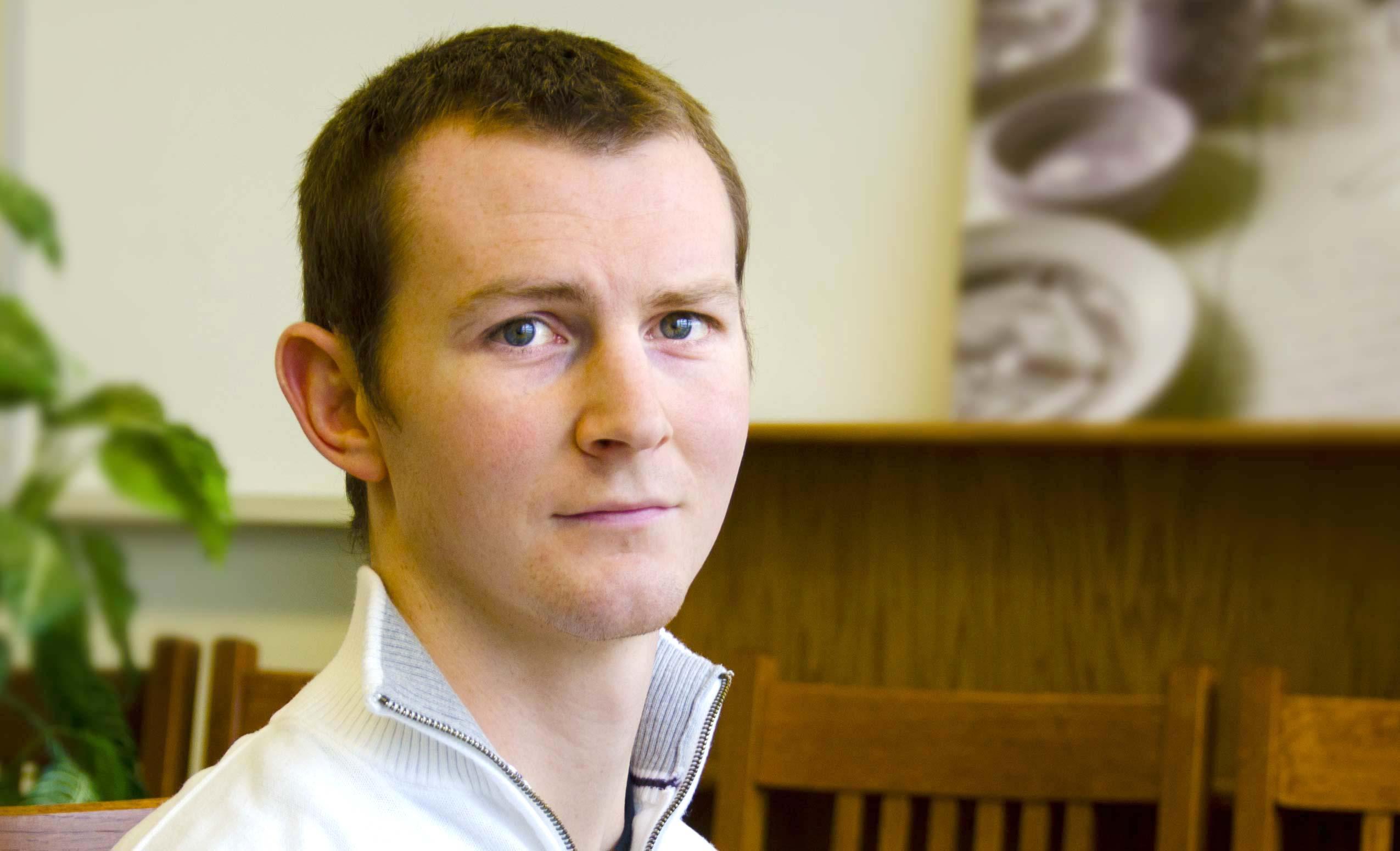A social studies teacher at Corcoran High School in Syracuse, Derrick Smith is also earning his master's degree in the Literacy Education program.
An average day for Derrick Smith begins with checking into his classroom at Corcoran High School around 6:45 a.m. to make any necessary preparations for the day. From there, he teaches social studies at 7:50 a.m., with a break for lunch. He’s in his classroom holding office hours every day until at least 2:50 p.m.
If it’s between November and March, Smith also will be working as the varsity assistant coach for the Syracuse City School District wrestling team from 3:30 to 5:30 p.m.
One day a week, Smith misses practice to travel to SUNY Oswego for class. On top of being a teacher, he’s also in the process of earning his master’s degree in literacy education. After class, he goes home to finish whatever schoolwork, grading or planning needs to be done before going to bed to start up again the following day.
It may seem like a lot but for Smith, the workload is worth it.
Leaving a lasting impact
“You’re making a far greater difference [as a teacher] on a daily basis,” he said. “Schools need great teachers – it’s a make-or-break for a lot of those kids.”
Smith’s story of dedication and commitment is another example of the high-quality educators that come out of SUNY Oswego’s graduate education programs. Also threaded continuously throughout the program is having teachers think about what it means to teach for social justice -- which, in part, means ensuring that all students have equal access to quality education, according to Dennis Parsons, coordinator of the literacy education program.
“It makes you more aware of some of the motivations students have and where they’re coming from,” Smith said. “You have to take their background into consideration before you judge their behavior.”
"In the curriculum, that means teaching students to understand what it means to be literate in the 21st century," Parsons said. "As educators, graduates of the program are prepared to question the current systems to ensure all students have access to quality education.
“In all areas of our program, we expect our graduates to examine critically the texts that we create and those that, through engaging with them, have a hand in creating us,” Parsons said.
"Literacy in an urban setting is a huge issue, so this additional coursework and prospective certification definitely gives me an advantage with my students."
Understanding teaching for social justice prepared Smith to deal with situations that others may not feel prepared to address. According to Smith, he deals with teaching and social justice on a daily basis.
“It’s great that they bring up questions, and it’s good that I’m prepared to talk about historical inquiry and the injustice different groups experienced over time so that they understand the origins and can continue to challenge it.”
Distinguished graduates
Smith chose to pursue his master’s degree in literacy education, knowing that specialized education degrees like his can help distinguish graduates as they enter the job market.
“Literacy in an urban setting is a huge issue, so this additional coursework and prospective certification definitely gives me an advantage with my students,” he said.
And with the focus on literacy continuing to be emphasized in schools, literacy degrees continue to be relevant and marketable in the education world.
“There’s such a focus on literacy that if you don’t understand it, it’s going to be tough to be a general classroom instructor in any core subject,” Smith said. “Literacy is etching its way into every single subject, so a literacy degree gives you a huge advantage.”
When the days feel hectic, Smith reminds himself of the difference he makes in his role as a teacher.
“Having a full-time teaching position while coaching and attending graduate school does make for a very busy life, but I have a very supportive wife and I just keep reminding myself how blessed I am to have a job and the difference I’m making on a daily basis," he said. "The workload is worth it.”




